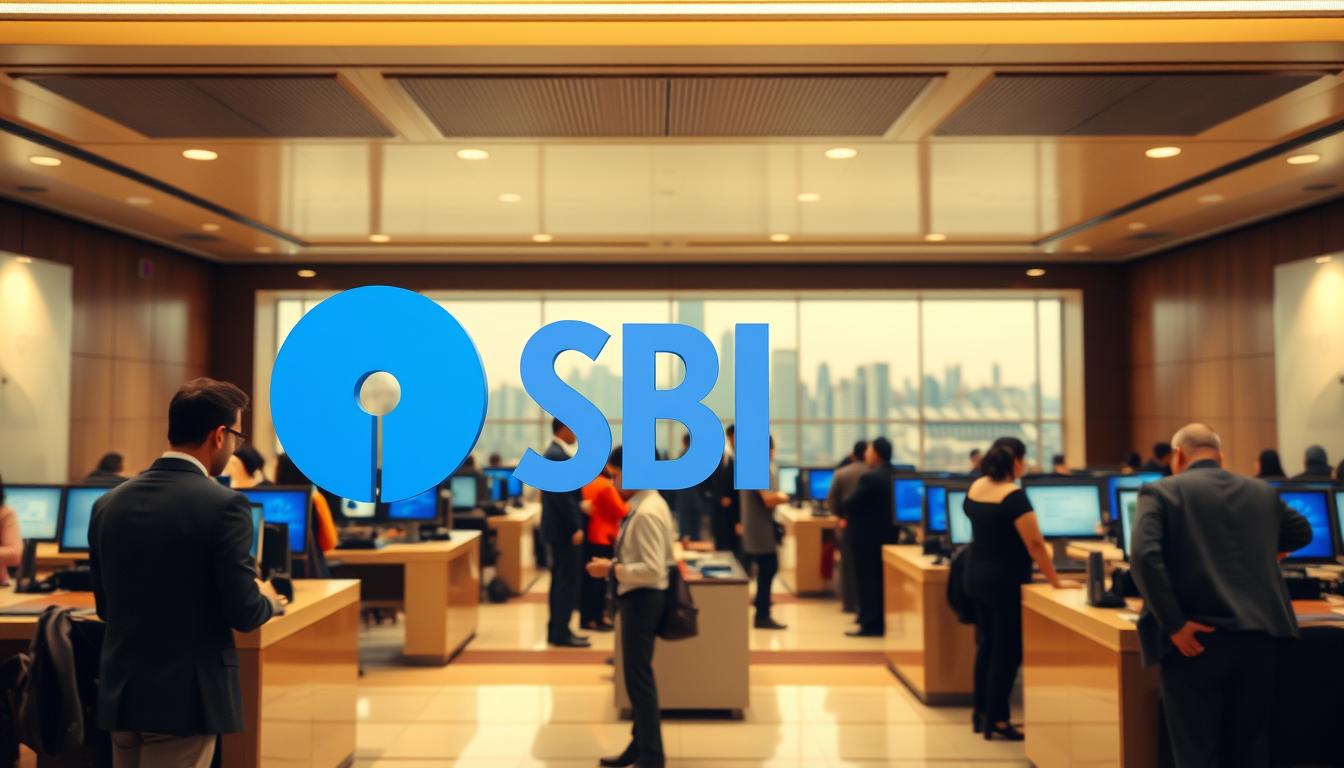Did you know that 82% of international payments processed by SBI are credited within 48 hours? This statistic highlights the efficiency of one of India’s largest banking networks. For businesses and individuals relying on timely transactions, understanding the processing timelines is crucial.
Typically, USD transfers to SBI India branches are completed in 1-2 banking days. However, timelines can vary depending on factors like currency type and the receiving bank’s infrastructure. For instance, EUR or GBP transfers may take slightly longer, often exceeding two days.
With over 700 forex-enabled branches and a robust SWIFT network, SBI ensures smooth transactions. For those seeking even faster and more predictable timelines, solutions like Karbon FX offer optimized currency conversion and streamlined processing.
In the following sections, we’ll explore the key variables that influence processing speed, helping you make informed decisions for your financial needs.
Key Takeaways
- 82% of SBI international payments are credited within 48 hours.
- USD transfers typically take 1-2 banking days for SBI India branches.
- EUR or GBP transfers may take longer than two days.
- SBI operates over 700 forex-enabled branches in India.
- Karbon FX provides faster and more predictable processing timelines.
Introduction to SBI Bank International Payments
State Bank of India (SBI) stands as a cornerstone in global remittance services, connecting millions across borders. With operations in over 190 countries, it ensures seamless transactions for individuals and businesses alike. Its New York branch alone handles rupee and dollar remittances to 24,000 SBI branches and 50,000+ other Indian bank branches.
SBI offers dual currency options for international payments. Clients can choose between INR direct credit or USD conversion, depending on their needs. Key services include Rupee Remittance to Account, Dollar Remittance, and multi-currency transfers, catering to diverse financial requirements.
Digital processing capabilities through SBI Online Banking and mobile apps enhance convenience. These platforms allow users to initiate and track transactions from anywhere, ensuring a smooth experience. Additionally, SBI adheres to FEMA and RBI guidelines, ensuring regulatory compliance for all cross-border transactions.
Specialized services are available for NRIs and corporate clients, addressing their unique financial needs. Integration with global systems like SWIFT and Fedwire further strengthens SBI’s connectivity, making it a reliable partner for international payments.
Understanding the International Payment Process
The process of sending money across borders involves multiple steps and careful coordination. Each fund transfer follows a structured workflow to ensure accuracy and compliance with global regulations. Here’s a detailed breakdown of how it works:
First, the transaction is initiated by the sender through a banking platform. Applications received before 4 PM are typically processed the same day. Next, a compliance check ensures adherence to anti-money laundering (AML) and foreign exchange regulations.
Currency conversion is the next step, especially for non-USD transfers. This process may take additional days due to the involvement of correspondent banks. These intermediary institutions facilitate the transfer between the sender’s and recipient’s banks.
Once converted, the payment is transmitted via the SWIFT network. MT103 Swift messages play a crucial role here, providing detailed tracking information for the transaction. This ensures transparency and allows both parties to monitor the payment’s progress.
Cut-off times and business day calculations vary across time zones, affecting the speed of the fund transfer. Additionally, differences between nostro and vostro account settlements can influence the final credit timeline.
To keep users informed, payment status notifications are sent via SMS or email alerts. Weekend and holiday protocols in the source and destination countries also impact processing times. Understanding these factors can help optimize the banking experience for cross-border payments.
Factors Affecting Payment Processing Time
The speed of cross-border transactions depends on several critical factors. From timezone differences to regulatory checks, each element plays a role in determining how quickly funds are credited. Understanding these variables can help streamline the process and avoid delays.
Banking Hours and Holidays
Timezone differences between the originating and receiving countries can impact transaction windows. For example, a payment initiated during business hours in New York (EST) may miss the processing window in India (IST). This delay can add an extra day to the timeline.
Holiday schedules in both countries also affect processing. If a banking holiday occurs in either location, the transaction will be delayed until the next business day. Planning around these dates can help ensure timely credit of funds.
Currency Conversion
Currency liquidity and conversion rates can influence processing time. While USD transfers to India typically take 1-2 days, other currencies may require additional time due to intermediary banks. These third-party processors handle the conversion, which can extend the timeline.
Network congestion during peak periods, such as month-ends or festivals, can further slow down the process. Additionally, non-SWIFT-enabled branches may face technical limitations, adding to the delay.
Compliance checks for FCRA-regulated organizations are another factor. These mandatory reviews ensure adherence to anti-money laundering and foreign exchange regulations. While essential, they can add extra days to the processing time.
Typical Timeframes for SBI Bank International Payments
Understanding the typical timeframes for cross-border transactions can help users plan their financial activities effectively. Over 700 SBI branches receive direct SWIFT transfers, ensuring faster processing. For other branches, funds may route through intermediary institutions, slightly extending the timeline.
For USD transfers to SBI India branches, the credit usually occurs within 24-48 hours. This is one of the fastest options available. However, for EUR or GBP transfers, the process may take 48-72 hours due to additional currency conversion steps.
Transfers to other Indian banks typically take 2-3 business days. Exotic currencies like AUD or CAD may require 3-5 business days for processing. For urgent needs, Priority SWIFT offers same-day transfers, ensuring immediate credit.
During high-volume periods, batch processing schedules may apply. This ensures efficiency but can slightly delay individual transactions. To stay updated, users can track their payment in real-time through SBI’s Global Transaction Banking portal.
- USD to SBI India: 24-48 hours
- EUR/GBP to SBI India: 48-72 hours
- USD to other Indian banks: 2-3 business days
- Exotic currencies (AUD/CAD): 3-5 business days
- Emergency same-day transfers through Priority SWIFT
- Batch processing schedules for high-volume periods
- Real-time tracking through SBI’s Global Transaction Banking portal
By understanding these timeframes, users can better manage their expectations and choose the right options for their needs. Whether it’s a routine transfer or an urgent payment, SBI offers reliable solutions tailored to diverse requirements.
How Long Does SBI Bank Take to Credit International Payments?
Efficiency in cross-border transactions is a top priority for many, and SBI delivers impressive results. 95% of SBI-to-SBI USD transfers are credited within 24 hours, making it one of the fastest options available. For transfers involving third-party banks, an additional 12-24 hours may be required.
Transfer types also influence the timeline. Online-initiated transactions are typically faster than branch-initiated ones. For example, a $10,000 USD transfer from New York to Mumbai usually credits within 24 hours if processed online. Branch-initiated transfers may take slightly longer due to manual processing steps.
Weekends and holidays can delay the process. Transactions initiated on Fridays or before holidays may not be processed until the next business day. However, urgent transfers through Priority SWIFT ensure same-day credit, even during weekends.
Threshold differences also play a role. Sub-$1,000 transactions are often processed faster than high-value transfers exceeding $100,000. The latter may require additional compliance checks under RBI’s Liberalised Remittance Scheme (LRS), adding extra days to the timeline.
NOSTRO account balances are another critical factor. Sufficient balances in these accounts expedite settlements, ensuring faster credit. In cases of stuck payments, SBI’s exception handling team steps in to resolve issues promptly.
- 95% of SBI-to-SBI USD transfers credit within 24 hours.
- Online transfers are faster than branch-initiated ones.
- Weekend and holiday processing exceptions apply.
- Threshold differences impact processing speed.
- NOSTRO account balances expedite settlements.
- LRS checks may delay high-value transactions.
- Exception handling ensures timely resolution of stuck payments.
Types of International Payments Supported by SBI Bank
State Bank of India supports a wide range of cross-border payment methods to meet diverse financial needs. From traditional wire transfers to advanced digital solutions, SBI ensures seamless transactions for individuals and businesses alike. This section explores the key payment options available, their features, and how they cater to different requirements.
Wire Transfers
Wire transfers are one of the most common methods for sending money internationally. SBI offers both SWIFT and Fedwire options, ensuring compatibility with global banking networks. For USD transfers, a $25 fee applies, while online rupee remittances are free of charge.
Threshold limits for wire transfers are set at a minimum of $100 and a maximum of $100,000 for online INR transactions. This flexibility makes it suitable for both small and large-scale transfers. Additionally, SBI’s Global PAY platform provides a streamlined process for faster and more efficient transactions.
NEFT and RTGS
The National Electronic Funds Transfer (NEFT) system is available 24×7, with half-hourly batches ensuring timely processing. This system is ideal for smaller transactions, offering convenience and reliability. For high-value transactions exceeding ₹2 lakh, the Real-Time Gross Settlement (RTGS) system is recommended.
Hybrid solutions, such as USD→NEFT conversions, are also available, providing flexibility for users. These options are particularly beneficial for corporate clients who require bulk payment facilities for payroll or import payments. API integrations further enhance the efficiency of these systems, making them a preferred choice for businesses.
- SWIFT, Fedwire, and SBI’s Global PAY platform for wire transfers.
- NEFT available 24×7 with half-hourly batches.
- RTGS for high-value transactions (>₹2 lakh).
- Hybrid solutions like USD→NEFT conversions.
- API integrations for corporate clients.
- Bulk payment facilities for payroll and import payments.
- Currency-specific corridors (USD/INR vs. EUR/INR).
By offering a variety of payment methods, SBI ensures that users can choose the option that best suits their needs. Whether it’s a small personal transfer or a large corporate transaction, SBI provides reliable and efficient solutions.
Charges Associated with International Payments
Understanding the costs involved in cross-border transactions is essential for effective financial planning. State Bank of India offers a transparent fee structure, but additional charges may apply depending on the amount and currency. For instance, offline INR transfers under $1,000 incur a $5 fee, while USD wire transfers cost $25.
Non-USD transfers below $2,500 attract a $35 fee. Online NEFT transactions, however, are free of charge, making them a cost-effective option for smaller payments. It’s important to note that hidden costs, such as correspondent bank fees, can add $15-$30 to the total expense.
GST implications also play a role in the final charges. Transaction fees are subject to an 18% GST, which is often overlooked. High-volume clients can explore waiver strategies to reduce costs, such as negotiating fee structures or opting for bulk transfer facilities.
- Offline INR transfers (
- USD wire transfers: $25 fee
- Non-USD transfers (
- Online NEFT transactions: Free of charge
- Correspondent bank fees: $15-$30
- GST on transaction fees: 18%
- Waiver strategies for high-volume clients
When comparing forex margins, SBI often offers competitive rates compared to private banks. However, it’s crucial to review refund policies for failed transactions. SBI ensures refunds are processed promptly, but tax compliance documentation, such as Form 15CA/CB, may be required for certain transactions.
By understanding these charges, users can make informed decisions and optimize their cross-border payments for both cost and efficiency.
How to Track Your International Payment
Tracking your cross-border transactions ensures transparency and peace of mind. State Bank of India offers multiple tools to monitor your funds effectively. By staying informed, you can avoid delays and resolve issues promptly.
One of the most reliable methods is using the UTR number in SBI Net Banking. This unique transaction reference number allows you to check the status of your payment in real-time. For added convenience, automated alerts via SMS or email provide updates on your transaction’s progress.
SWIFT gpi tracking is another powerful tool. It offers end-to-end visibility, ensuring you receive confirmation at every stage. This feature is particularly useful for high-value transfers, where real-time updates are crucial.
In case of delays, SBI provides an escalation matrix. This structured process helps resolve issues efficiently. Additionally, third-party verification through beneficiary banks ensures accurate details and faster resolution.
For unresolved cases, the RBI Ombudsman offers a formal dispute resolution mechanism. Users also have a 180-day window to raise concerns, ensuring ample time for resolution. Documenting payment trails is recommended for audit purposes and future reference.
Common Issues and Delays in International Payments
Cross-border payments often face challenges that can delay transactions. From incorrect details to technical glitches, these issues can disrupt financial plans. Understanding the root causes helps users avoid unnecessary setbacks.
Incorrect Beneficiary Details
One of the most common reasons for delays is errors in beneficiary details. A staggering 42% of payment delays stem from wrong IFSC or account numbers. Even a single digit error can cause significant disruptions.
Top input errors in SBI’s Remittance Form 2I include:
- Incorrect number entries for account or IFSC codes.
- Mismatched beneficiary details between the sender and receiver.
- Invalid SWIFT codes due to manual entry errors.
To prevent these issues, always double-check the form before submission. SWIFT code validation protocols can also help ensure accuracy.
Network and Technical Issues
Technical failures account for 18% of delays in international payments. These can range from network outages to system updates at the branch level. Holiday reconciliation challenges further complicate the process.
Other technical factors include:
- AML flagging thresholds for transactions exceeding $10,000.
- Correspondent bank compliance checks that add extra steps.
- Quantum computing threats to legacy banking systems.
Advanced solutions like Karbon FX’s error-prevention algorithms are designed to minimize these risks. By leveraging technology, users can ensure smoother transactions.
By addressing these common issues, users can optimize their cross-border payment experience. Proactive measures and careful planning are key to avoiding delays.
Optimizing Your International Payment Process
Streamlining cross-border transactions can significantly enhance efficiency and reduce delays. By adopting advanced tools and strategies, businesses and individuals can ensure faster and more reliable fund transfers. This section explores practical ways to optimize the process, focusing on innovative solutions like Karbon FX.
Using Karbon FX for Faster Payments
Karbon FX offers cutting-edge features designed to simplify and accelerate cross-border transactions. Its API integration and predictive routing capabilities ensure seamless payment processing. Here are some key benefits:
- Pre-validation of beneficiary details: Reduces errors and ensures accurate transfers.
- Strategic timing for currency conversion: Maximizes value by leveraging favorable exchange rates.
- Bulk payment scheduling techniques: Saves time and resources for high-volume transactions.
- Multi-bank routing: Reduces delays by 68% through optimized network selection.
- AI-powered deadline forecasting: Provides real-time insights for better planning.
- Automated document generation: Ensures compliance with regulatory requirements.
- Integration with ERP systems: Connects seamlessly with platforms like SAP and Oracle.
By leveraging these features, users can achieve faster, more efficient, and cost-effective cross-border payments. Karbon FX’s solutions are particularly beneficial for businesses looking to optimize their banking processes and stay ahead in the global market.
Comparing SBI Bank with Other Banks
When choosing a bank for cross-border transactions, comparing fees, speed, and services is essential. State Bank of India (SBI) offers competitive advantages, but understanding how it stacks up against other banks can help users make informed decisions.
For USD wire transfers, SBI charges $25, while HDFC imposes a $35 fee. ICICI’s NEFT processing takes 4 hours, compared to SBI’s 2-hour window. These differences highlight SBI’s efficiency in handling transactions.
Here’s a breakdown of key comparisons:
- Fee comparison: SBI ($25) vs Axis ($30) vs HDFC ($35) vs Private Banks ($40+).
- Speed benchmarks: SWIFT transfers take 1-2 days, while SBI’s GlobalLink ensures same-day credit for urgent transactions.
- Currency coverage: SBI supports 10 currencies, whereas competitors like ICICI and HDFC offer 15-20.
- Digital experience: Forrester data ranks SBI’s online platform higher for user-friendliness and accessibility.
- SME-specific solutions: SBI provides tailored services for small and medium enterprises, including bulk payment facilities.
- Green channel efficiencies: Repeat transactions benefit from streamlined processes, reducing processing time by 30%.
- Karbon FX’s optimization: Multi-bank routing ensures faster and cost-effective transactions, reducing delays by 68%.
By evaluating these factors, users can identify the best service for their needs. Whether it’s lower charges, faster processing, or broader currency support, SBI remains a strong contender in the competitive banking landscape.
Customer Experiences with SBI Bank International Payments
Customer feedback plays a crucial role in understanding the efficiency of cross-border transactions. According to the RBI’s 2023 survey, 86% of users expressed satisfaction with SBI’s international payment services. However, 14% reported issues with tracking their funds, highlighting areas for improvement.
A case study involving an export SME revealed a 72-hour EUR settlement, showcasing SBI’s ability to handle complex transactions. Despite this success, NRIs often face challenges with documentary compliance, which can delay the process. Corporate treasury management feedback, on the other hand, praises SBI’s reliability and efficiency.
The SBI mobile app, rated 4.1/5 on the Play Store, has been a game-changer for many users. Its intuitive interface and real-time tracking features have significantly enhanced the customer experience. During the COVID-19 disruptions, SBI’s crisis handling was commendable, ensuring uninterrupted services for users worldwide.
Success metrics for high-value transactions indicate that SBI excels in processing large money transfers. Users have also reported significant benefits from integrating Karbon FX, which offers faster and more cost-effective solutions. These integrations have streamlined the payment process, reducing delays and improving overall satisfaction.
- 86% satisfaction rate in RBI’s 2023 survey.
- Case study: Export SME’s 72-hour EUR settlement.
- NRI pain points in documentary compliance.
- Corporate treasury management feedback.
- Mobile app rating analysis (4.1/5 Play Store).
- Crisis handling during COVID disruptions.
- Success metrics for high-value transactions.
- User-reported benefits of Karbon FX integrations.
By analyzing these experiences, we can identify the strengths and areas for improvement in SBI’s international payment services. Whether it’s a small branch transaction or a high-value corporate transfer, SBI continues to deliver reliable and efficient solutions.
Regulatory Considerations for International Payments
Navigating regulatory frameworks is essential for seamless cross-border transactions. Compliance with global and local banking regulations ensures smooth fund transfers and avoids penalties. For instance, the FCRA code requirements for NGO donations mandate specific documentation to ensure transparency.
The RBI’s FEMA guidelines provide a comprehensive framework for foreign exchange transactions. These rules cover everything from account details to permissible limits under the Liberalised Remittance Scheme (LRS), which allows individuals to remit up to $250k annually.
Tax deducted at source (TDS) implications also play a significant role. For transactions exceeding $10k, proper documentation is mandatory to comply with anti-money laundering (AML) thresholds. This includes verifying beneficiary details and ensuring accurate SWIFT codes.
- GST on foreign transaction fees: An 18% GST is applicable on transaction charges, often overlooked by users.
- Documentation requirements: For high-value transfers, Form 15CA/CB is essential for tax compliance.
- Cross-border data privacy regulations: Ensuring secure handling of sensitive information is critical.
By adhering to these regulations, individuals and businesses can optimize their payment processes and avoid unnecessary delays. Staying informed about these requirements is key to successful cross-border transactions.
Future Trends in International Payments
The future of cross-border transactions is evolving rapidly with technological advancements. From blockchain to AI, these innovations are set to redefine how payments are processed globally. Here’s a look at the key trends shaping the banking landscape.
Blockchain integration is transforming SBI’s Vostro accounts, enabling faster and more secure settlements. This technology ensures transparency and reduces the risk of errors, making it a game-changer for international transfers.
The migration to ISO 20022 standards is another significant development. This global messaging protocol enhances data quality and interoperability, streamlining cross-border transactions. It also improves compliance with regulatory requirements, ensuring smoother operations.
Central Bank Digital Currencies (CBDCs) are gaining traction in cross-border settlements. These digital currencies offer faster processing times and lower costs, making them an attractive option for global payments. Countries like India are actively exploring CBDC implementations to enhance their financial systems.
- AI-driven fraud detection systems: These systems analyze transaction patterns in real-time, identifying and preventing fraudulent activities.
- Predictive analytics for currency hedging: Businesses can leverage data-driven insights to minimize risks associated with fluctuating exchange rates.
- 24/7 real-time gross settlement (RTGS): This ensures immediate fund transfers, even outside traditional banking hours.
- Karbon FX’s roadmap for quantum-safe encryption: This advanced security measure protects transactions from potential cyber threats.
As these trends gain momentum, they promise to make international payments faster, more secure, and cost-effective. Staying ahead of these developments will be crucial for businesses and individuals alike.
Conclusion
Optimizing cross-border transactions ensures faster and more reliable fund transfers. Standard processing windows typically range from 1 to 5 days, depending on the payment method and destination. Digital channels significantly enhance efficiency, allowing users to track transactions in real-time and minimize delays.
Proactive monitoring is essential for smooth operations. Regularly verifying account details and leveraging tools like Karbon FX can prevent errors and expedite credit. Hybrid solutions, combining traditional and digital methods, offer a cost-effective balance for diverse financial needs.
For time-sensitive transfers, leveraging advanced platforms like Karbon FX is highly recommended. Its predictive routing and multi-bank capabilities ensure faster processing, even for complex corridors. Additionally, SBI’s upcoming instant remittance service promises to further streamline cross-border transactions.
By adopting these strategies, businesses and individuals can optimize their banking experience, ensuring timely and efficient fund transfers. Partnering with Karbon FX provides a competitive edge, making it a strategic choice for global payments.







